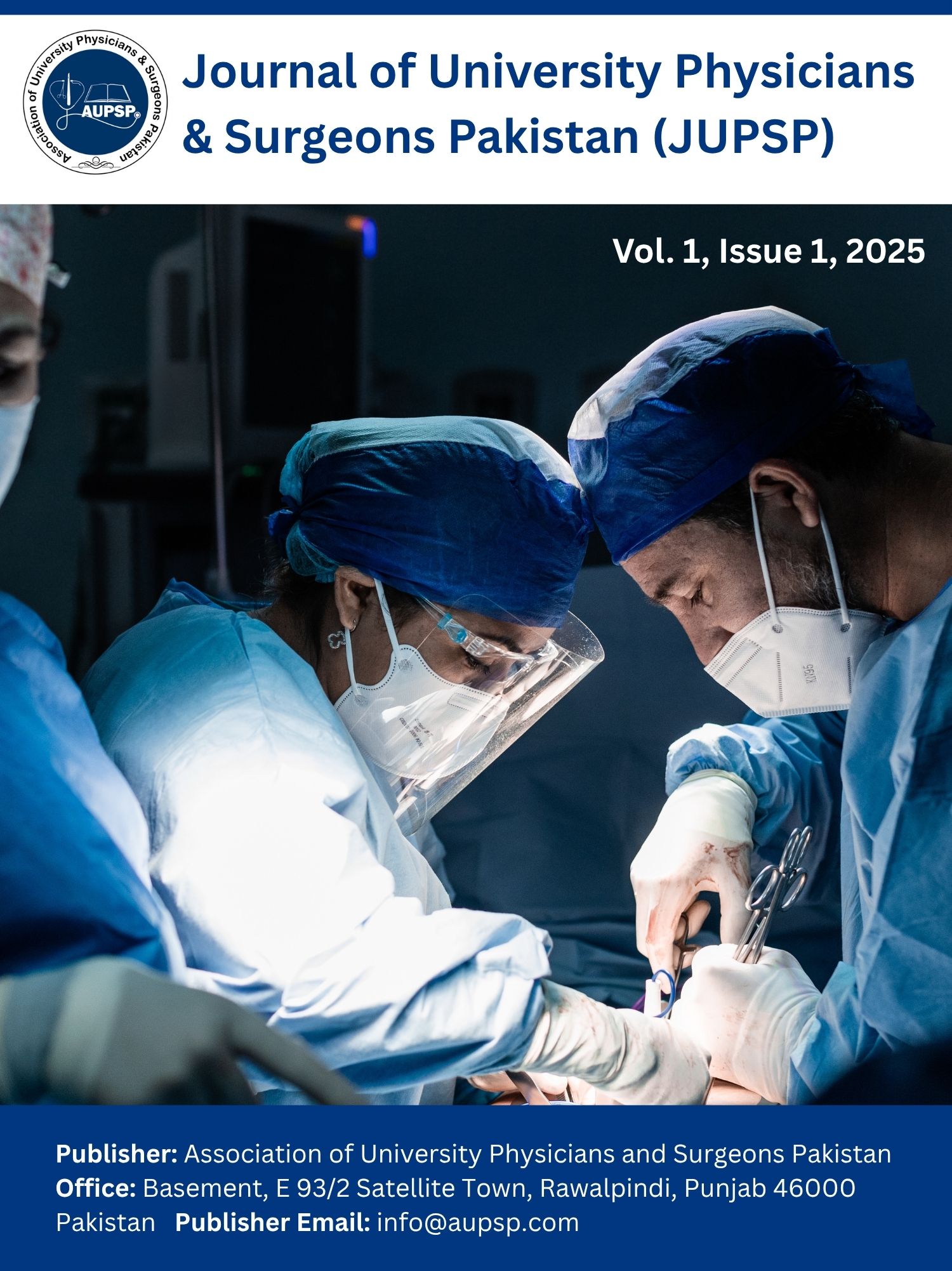The Official Journal of AUPSP

Journal of University Physicians and Surgeons Pakistan (JUPSP)
Published by the Association of University Physicians and Surgeons Pakistan (AUPSP)
The Journal of University Physicians and Surgeons Pakistan (JUPSP) is a peer-reviewed, open-access publication that champions ethically sound, multidisciplinary health research. Editorial independence, scientific excellence, and global inclusivity are at the heart of its mission.
JUPSP invites contributions in the following areas:
Accepted article types: Original research, reviews, case reports, commentaries, innovations, technical briefs, editorials, and perspectives.
Comprised of qualified experts across disciplines, the board includes:
Double-blind peer review — authors and reviewers remain anonymous.
All practices adhere to:
Based on ICMJE criteria, authors must:
All content is published under the Creative Commons Attribution 4.0 International License (CC BY 4.0):
JUPSP ensures digital preservation via:
Submissions are judged on:
Issued when errors do not affect research validity.
Triggered by:
Published if ethical issues emerge pending formal investigation.
JUPSP aligns with editorial and technical standards required by:
|
Platform |
Focus |
|
COPE |
Ethics, oversight, correction policies |
|
ICMJE |
Authorship, disclosures, clinical trial registry |
|
DOAJ |
Open access structure, metadata, licensing |
|
PubMed/PMC |
Scientific rigor, XML compatibility, discoverability |
|
Web of Science |
Editorial transparency, citation standards |
JUPSP fosters:
Editorial Policy
AI in Editorial Workflows
JUPSP editorial staff may use AI tools to assist with policy drafting, submission formatting, and communications. All AI-assisted content is verified by qualified human editors before publication. Editorial decisions regarding manuscript acceptance, ethical compliance, and peer-review management are made solely by humans.
Editorial Office – JUPSP
Email: journal@aupsp.com
Association of University Physicians and Surgeons Pakistan (AUPSP)
The Official Journal of AUPSP

Publisher: Association of University Physicians and Surgeons Pakistan | Website: https://aupsp.com | Email: info@aupsp.com
Office: Basement, E 93/2 Satellite Town, Rawalpindi, Punjab 46000 Pakistan
Copyright © 2025 The Author(s) distributed under the terms of Creative Commons Attribution 4.0 International License. | Powered by TRIM
